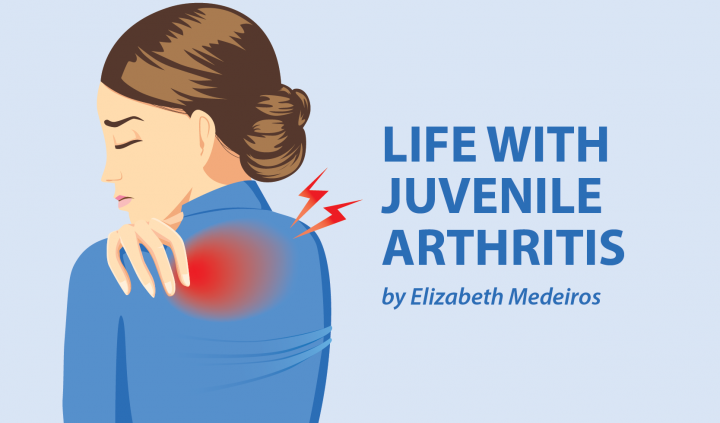When thinking about arthritis, one doesn’t usually associate it with chronic fatigue. But juvenile arthritis doesn’t only cause joint pain, it also often brings on flu-like symptoms and fatigue.
As a teen, I struggled to cope with my fatigue. I often thought that others saw me as lazy when I was reluctant to do chores or extra-credit work at school. I felt like there was no right way to explain what I was going through and I carried a lot of guilt on my shoulders.
My life changed one day when I stumbled across the spoon theory. “The Spoon Theory,” an essay by Christine Miserandino, who has lupus, explains the limitations that people with chronic illnesses face. According to the theory, everyone has a certain number of spoons (aka energy) every day, and each task — such as getting out of bed — costs a certain number of spoons.
Some days, you may have an abundance of spoons and have no issue doing anything. But other days, you may have few spoons and need to prioritize your tasks. Or, if you run out of spoons, you could risk borrowing from the next day’s spoon allowance, possibly leaving you with no energy for tomorrow. I highly recommend reading or listening to the theory, as Christine explains it so much better than I can.
After discovering the spoon theory, my struggles felt validated. I didn’t feel alone anymore. Many people with chronic illnesses hold the spoon theory near and dear to their hearts, and even call themselves “spoonies.” The spoon theory gave me a way to explain my struggles to my loved ones confidently. It also helped those who took the time to read it to realize what I was going through.
Seeing each other’s point of view
Chronic fatigue isn’t just frustrating to the person living with it — it’s also frustrating to caregivers. Sometimes, it may seem like your kid’s exhaustion hits just in time to get out of doing chores or other unpopular tasks. A typical example is that a teenager may seem to have enough energy to walk around the mall with their friends, but not to do the dishes or clean their room.
But when you live with limited energy, others don’t realize that you must prioritize your goals for the day. Many older kids and teens with JA understand this even without knowing about spoons. They may struggle to balance their lives between going to school (which often eats up most of their spoons), home life, and their need to be social.
Learning to prioritize
Parents, I urge you to read about the spoon theory and have a discussion with your child. You may find a new understanding of what your child is going through. You may also realize your child needs help to prioritize their spoons. For example, maybe chores could be shifted to the weekends instead of after school.
Also, it’s important to remember that kids with JA need spoons to spend on just being a kid. It’s tough to fit in with friends as a young person with limited energy. Let your child have time to be with friends and to rest afterward — they need it.
Eventually, your child will learn to prioritize their energy and daily goals as they mature. Their priorities as a teen feeling academic and peer pressure will be different than their priorities as an adult with a career and a serious partner. But helping them to set down a good foundation of learning to balance work and joy will help them to be successful in the future.
***
Note: Juvenile Arthritis News is strictly a news and information website about the disease. It does not provide medical advice, diagnosis, or treatment. This content is not intended to be a substitute for professional medical advice, diagnosis, or treatment. Always seek the advice of your physician or other qualified health provider with any questions you may have regarding a medical condition. Never disregard professional medical advice or delay in seeking it because of something you have read on this website. The opinions expressed in this column are not those of Juvenile Arthritis News, or its parent company, BioNews Services, and are intended to spark discussion about issues pertaining to juvenile arthritis.

